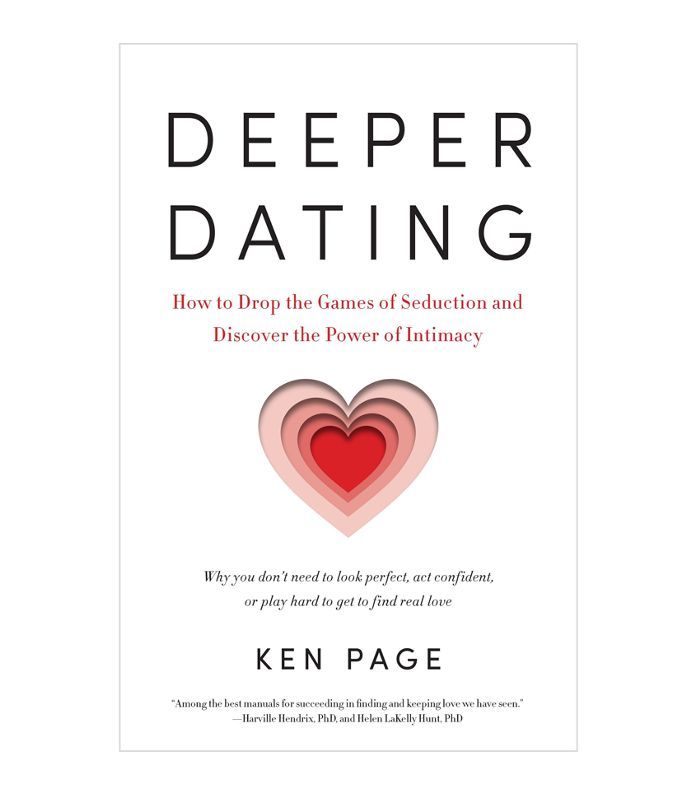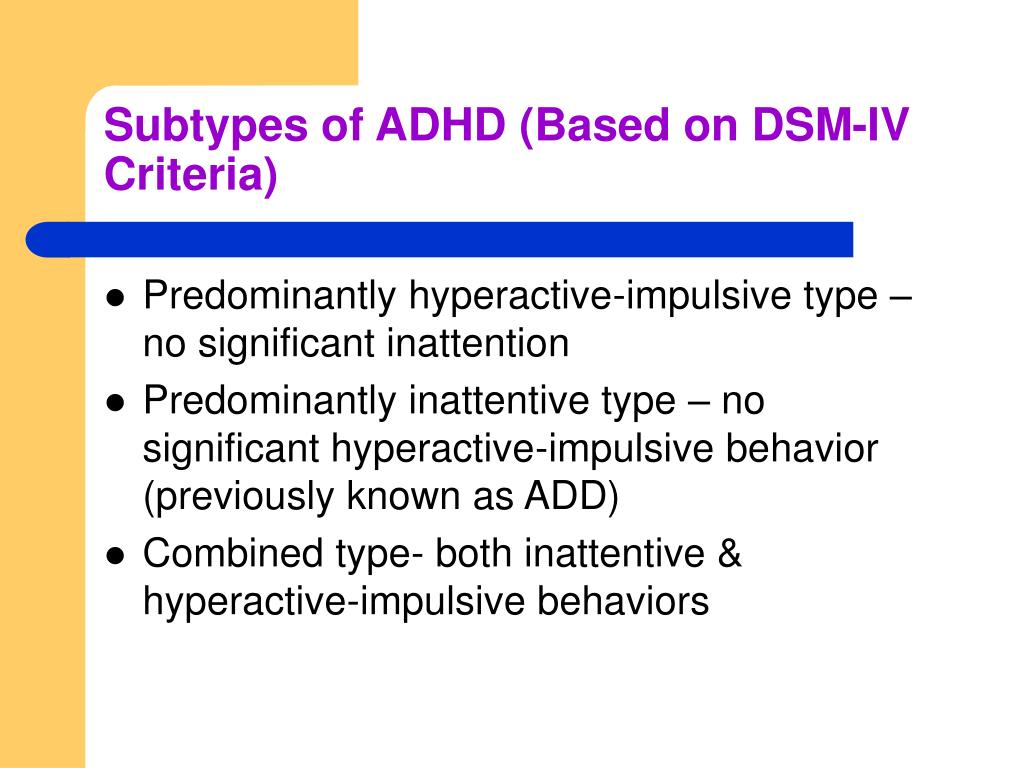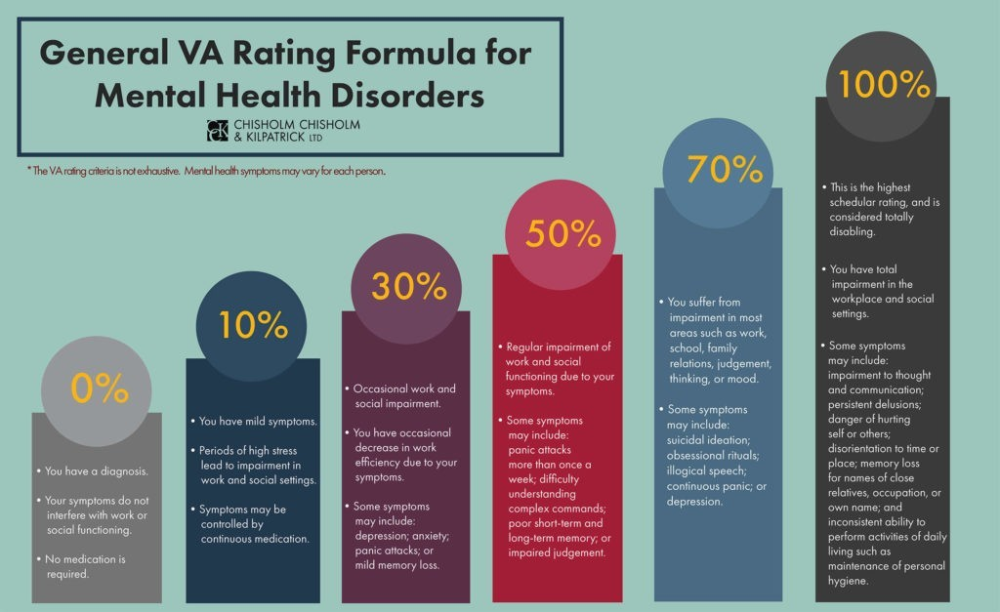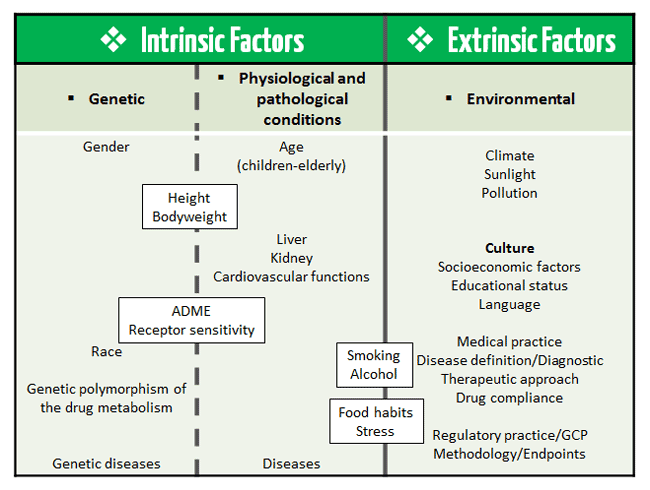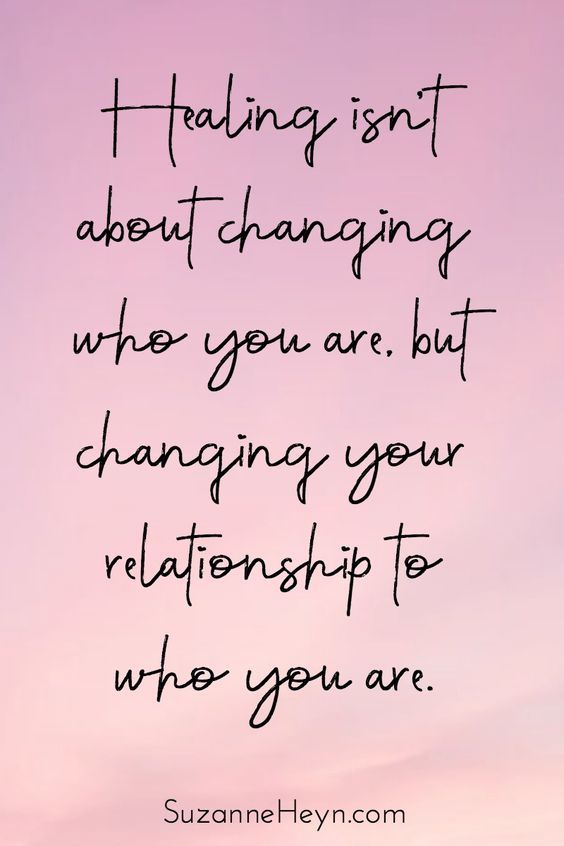Why is divorce so hard
The Absolute Hardest Thing About Divorce
All emotions are normal during a divorce.
Source: Photo by cottonbro from Pexels
If you had asked me what the hardest thing was when I got divorced, I would have said it was my worry about my children. But there were so many other really hard things. Every divorce is unique, of course. Divorcing is difficult, painful, and scary, even when you are the one that decided to divorce. Some alternative dispute resolution processes, such as mediation and Collaborative Divorce, are more respectful. But even if you can divorce amicably, it’s hard and it hurts.
If you ask people what the hardest thing was about their divorce, you’ll get a lot of answers. If you are divorcing, considering divorce, or divorced long ago, you may think that some (or all) of these are the hardest thing.
Making the decision
Simply making the decision can torment you. Divorce may violate all your values, and when you are so hopeless that you cannot stay with your spouse, it can be crushing. As one client, Josie (not her real name), said, “I had one rule when I was married: I would never divorce. I never wanted to do that to my children. Yet I made the excruciating decision when I realized I had no choice.” There is a myth that the person who makes the decision doesn’t suffer, but in fact he or she does, in many ways: fear, shame, guilt, anger, and so on.
Worrying about your children
Many people feel that telling the kids is the hardest part—usually this is early on when your emotions are raw, you may be about to separate or newly separated, and your future is unknown. As one client told me, “I was so afraid that my daughter would break down, or that I would. I was afraid of what my ex would tell them, or that he’d tell them before I had a chance to plan it with him.” A father said, “I was so nervous when we told the kids. And then, when they wouldn’t talk about it, I felt even worse because I wanted to know how they felt.”
You worry about the damage the divorce will cause your children.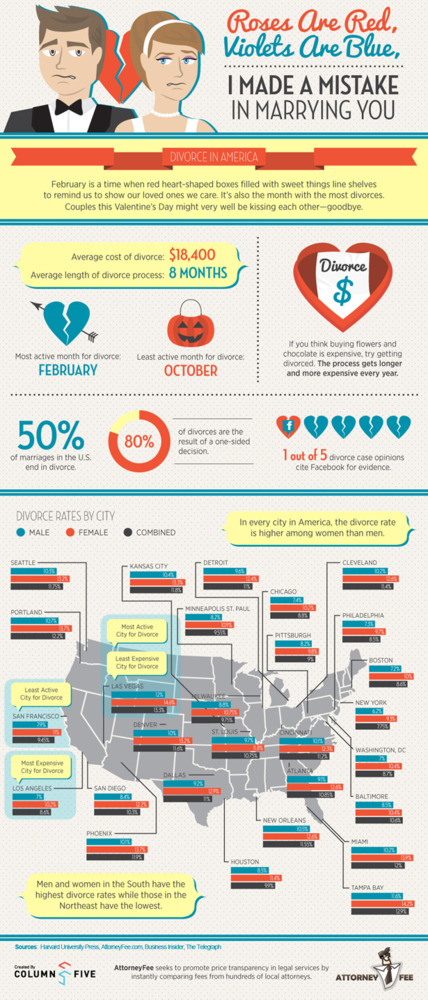 You grieve that you won’t see your kids every day and put them to bed every night. You miss them when they are with your ex and worry about whether they are ok. Josie said, “I was never able to get used to not being with them every day. Every time my kids went back to my ex, I cried. Even after years, I never stopped feeling the gut-wrenching pain of their leaving. I kept wondering what toll this was taking on my relationship with them. I had nightmares about long-term damage and it was all my fault.”
You grieve that you won’t see your kids every day and put them to bed every night. You miss them when they are with your ex and worry about whether they are ok. Josie said, “I was never able to get used to not being with them every day. Every time my kids went back to my ex, I cried. Even after years, I never stopped feeling the gut-wrenching pain of their leaving. I kept wondering what toll this was taking on my relationship with them. I had nightmares about long-term damage and it was all my fault.”
Loneliness
Many people say that the loneliness is the hardest part. It takes a very long time to get used to being single. Not only have you lost your partner, and perhaps your best friend, but you have possibly also lost your in-laws and the extended family that you married into. Your home and your bed feel empty. Laura remembered, “I just stopped eating because I didn’t have the energy to cook for just myself. They call it the divorce diet.”
Not only do you have less time with your kids, if you have them, but you are parenting alone, and you may miss the support of a parenting partnership.
You may find that friends choose sides, or try to blame one of you.
Carol told me, “You feel the stigma, especially if some friends distance themselves, and you feel like a failure as a person.” Maybe you are filled with shame about the breakdown of the marriage, and perhaps guilt for the ways you contributed to the problems. “It was hard to interact with people at all because I felt like I was a mess,” Carol continued.
Perhaps you can’t imagine starting to date again. You imagine that you’ll be alone for the rest of your life. You think, “Who would want me anyway?”
Not knowing you will recover and things will get better
It often seems that there is no light at the end of the tunnel. People frequently think they are ruined financially, and emotionally. Your anxiety may get the best of you as you imagine the worst. You wonder if you’ll live in a dank basement apartment or become a bag lady. As Mike said, “I drove past a homeless encampment and thought I might end up there. ” Alex told me, “Moving out of the home we had built together was one of the worst days of the divorce.”
” Alex told me, “Moving out of the home we had built together was one of the worst days of the divorce.”
You may have to earn more or (if you haven’t been working) find a new job. Money is a huge stressor and causes a lot of conflict when you are trying to settle your divorce. Nick remembered, “We fought about money more than anything when we divorced. I thought she’d never be satisfied with the settlement, and she kept bargaining for more. It felt like a trap I couldn’t escape.” Nancy recalls, “I loved being a full-time mom and now I don’t know who I am. I haven’t worked in years and don’t even know how to go about getting a job. My skills are stale and outdated. I don’t even want to be doing this.”
You may also worry you may never recover emotionally. Your world has turned upside down and you wonder if you’ll ever come out of the depression or fog. You feel lost without a compass. You’ve lost your sense of purpose as a spouse and parent. You struggle to figure out who you are.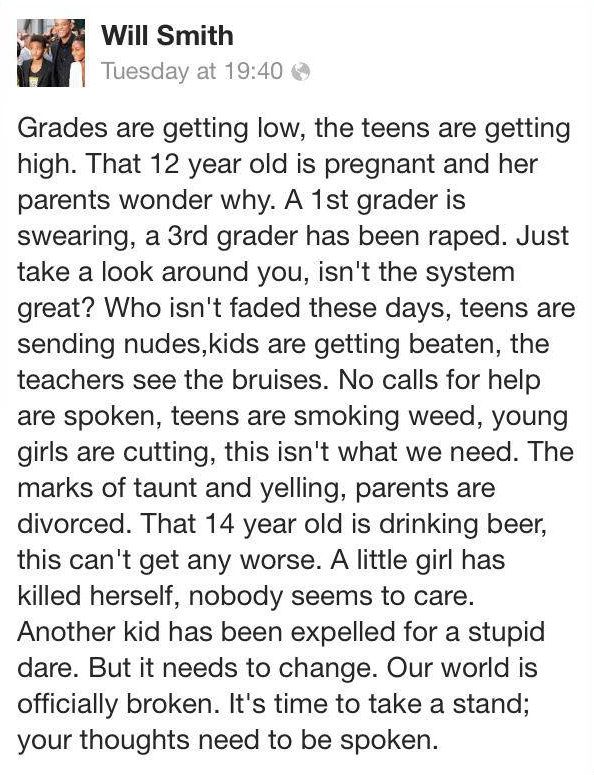 Josie said, “I was barely making it from one day to the next. I cried every day for such a long time.” You doubt that you’ll get over the rejection. You are overwhelmed with grief, and feel betrayed. You think, maybe now I’m damaged and will never recover. Morgan told me, “I stayed furious for years. I couldn’t forgive him, and couldn’t move on. I was totally stuck in my misery.”
Josie said, “I was barely making it from one day to the next. I cried every day for such a long time.” You doubt that you’ll get over the rejection. You are overwhelmed with grief, and feel betrayed. You think, maybe now I’m damaged and will never recover. Morgan told me, “I stayed furious for years. I couldn’t forgive him, and couldn’t move on. I was totally stuck in my misery.”
Your relationship with your ex
You can’t figure out how someone you once loved, and who loved you, has become so hurtful and distant. You think, “He was my best friend, and now he’s my adversary?” You can’t understand how or why this happened. You may blame yourself, wrestle with self-doubt, or wonder, “Did I do the right thing? Could I have saved the marriage?” Maybe you are dealing with months or years of your ex’s rage and rejection, and the awful rumors that your ex is spreading in your community. Maybe you can’t get over your own rage, and even years later you are caught up in a blaming story about what happened, what he or she did to you.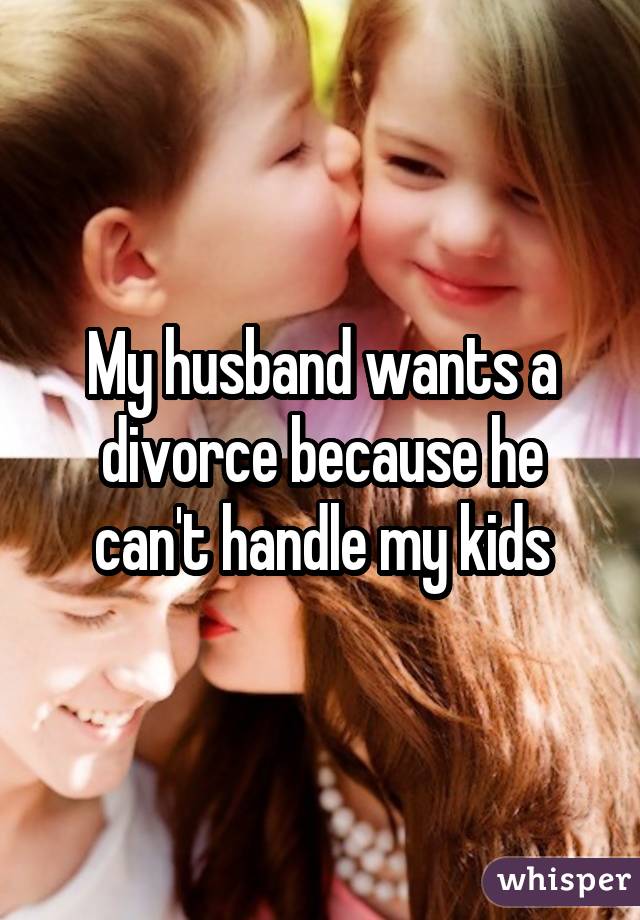
Dealing with the miserable legal process
It is often said that divorce is 95% emotional and only 5% legal. But for some, the legal process is the hardest. “I couldn’t focus on the paperwork and just wanted it to be over. I made decisions I regretted later. We should have waited to do the legal part until we were out of the crisis and survival mode.”
Life will feel normal again.
Source: Used with permission/Pixabay
Life does get better
But over time, life does get better. Once the conflict stops, and the divorce is over, you may find that in a year, perhaps two, you feel like yourself again. You adjust and your kids adapt. You create new traditions and explore new activities or interests. You reconnect with your friends. And your kids still love you.
Perhaps you begin to date or start a new relationship. Fran said, “I had never done this online dating before, but it was fun to meet people and feel attractive again.” So as difficult as the divorce was (or is), remember that you will be okay. Just give yourself some time, and pay attention to taking care of yourself. If you need support, find a counselor or therapist who specializes in divorce-related work.
Just give yourself some time, and pay attention to taking care of yourself. If you need support, find a counselor or therapist who specializes in divorce-related work.
© Ann Buscho, Ph.D. 2020
Facebook image: stefanolunardi/Shutterstock
11 Heart-Wrenching Truths About Divorce That You Must Know
As it is generally known, divorce can be very intense and brutal. Divorce indicates the end of something big; it can seem like all the hard work and dedication you had put into a relationship has gone to waste.
The truth about divorce is that it does signify the end of something big, which if not handled carefully, it can change your entire world. Divorce is hard.
Every divorce is different and every person’s reaction to divorce is different. But the common thing among all divorces is that marriage, which once brought joy in the couples’ lives, is at its end. Unless you had once experienced a divorce before, it is quite difficult to know what you’re in for or how you will feel.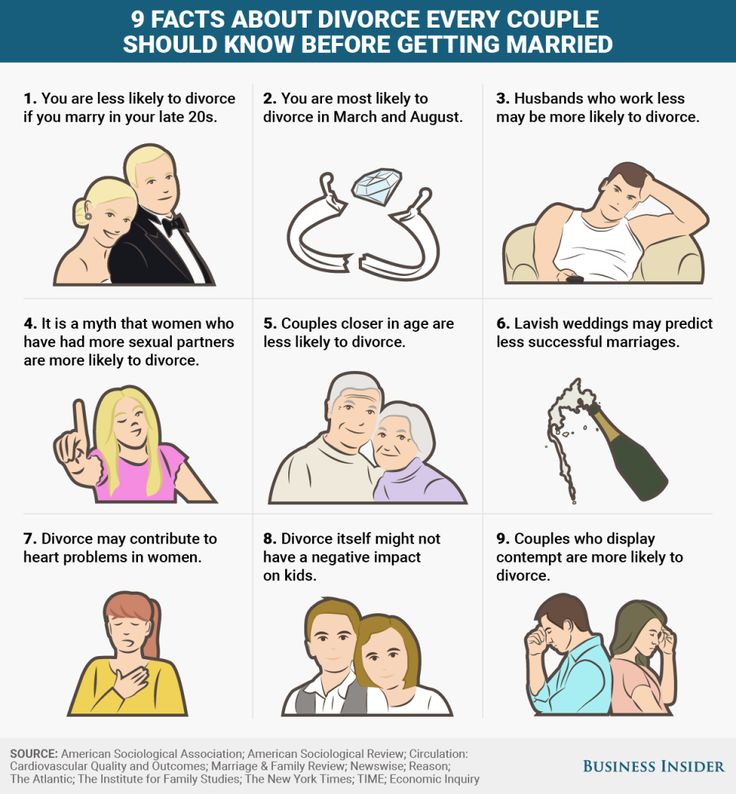
While the fundamentals of divorce are well known to most people—we all have learned from someone who has gone through a divorce, watched a movie about it, or read a book—the real messy truths about divorce aren’t as well known through other people’s personal experience, movies or even books.
The biggest truth about divorce is that you can’t ultimately prepare for this great change in your life, but there are some things you need to know to know. Here are 11 brutal truths about divorce that no one actually tells you.
1. Even if you are over your partner, divorce will be painfulExperiencing a divorce is very hard even if you are prepared for it.
If you’ve asked yourself these questions -How to know when to divorce? And how to know when divorce is right? Then know that these are not questions you will find answers to overnight.
You know being with your ex can be toxic and harmful to your physical and emotional health, so you do the right thing by deciding to break away from them via divorce.
But the truth about divorce is that it is still hard due to the legal battles; going to court to settle or resolve some things is hard and socially people don’t know what to say whenever they see you. You should be prepared for hard times and rough emotions if you want a divorce.
2. Divorce does not make you instantly happierThe major reason you divorced your partner in the first place is that you were no longer happy in the marriage, but going through a divorce doesn’t make you happier. However, divorce and happiness are mutually exclusive.
The truth about divorce is that most people feel freer after the divorce but it never makes them happier right away. After a divorce, you may feel like you have lost a part of you.
3. If your spouse can’t wait to get divorced, they may have someone else alreadyHow do you know when to divorce? Don’t miss the red flags if you find your spouse acting restless and hasty about divorce. It’s time you understand that there is no hope for rebuilding the relationship and gracefully step back.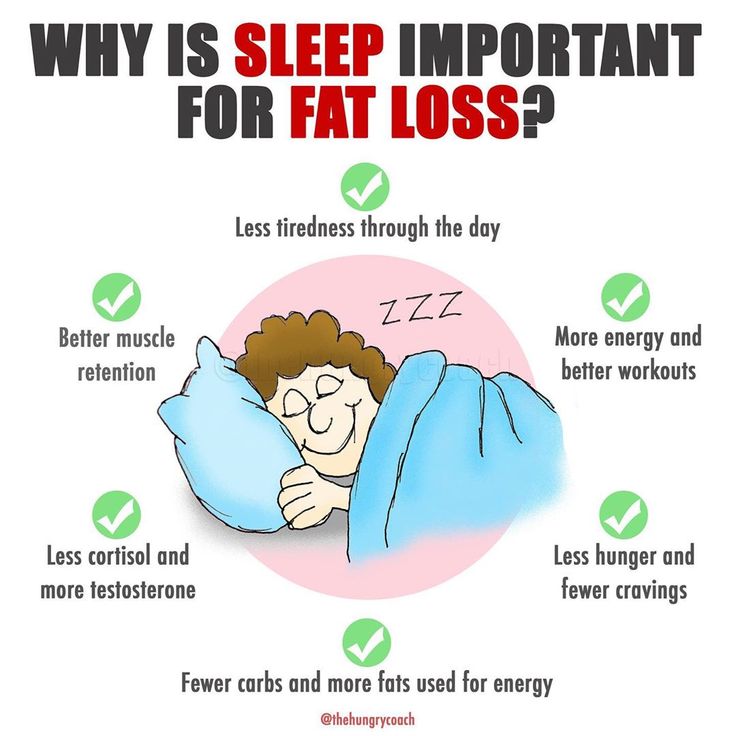
The most crucial reason why your spouse may rush to divorce you is that they may have someone else in line. There may be somebody ready to take your place in the marriage, even though you might not know about this new person yet.
Be ready to face the fact that your spouse is seeing someone else, and may even be serious enough to divorce you.
Also watch:
4. A few family members and friends will desert youA possible truth about divorce is that at first, most of your ex’s family and friends may isolate you since you are divorced. Even if you’ve become too close to your spouse’s family and friends, right after the divorce, they may cut bonds. Being close with someone that has divorced your friend or family member can be hard and awkward.
5. Divorce brings out the evil in peopleDivorce often means child custody and who gets what financially.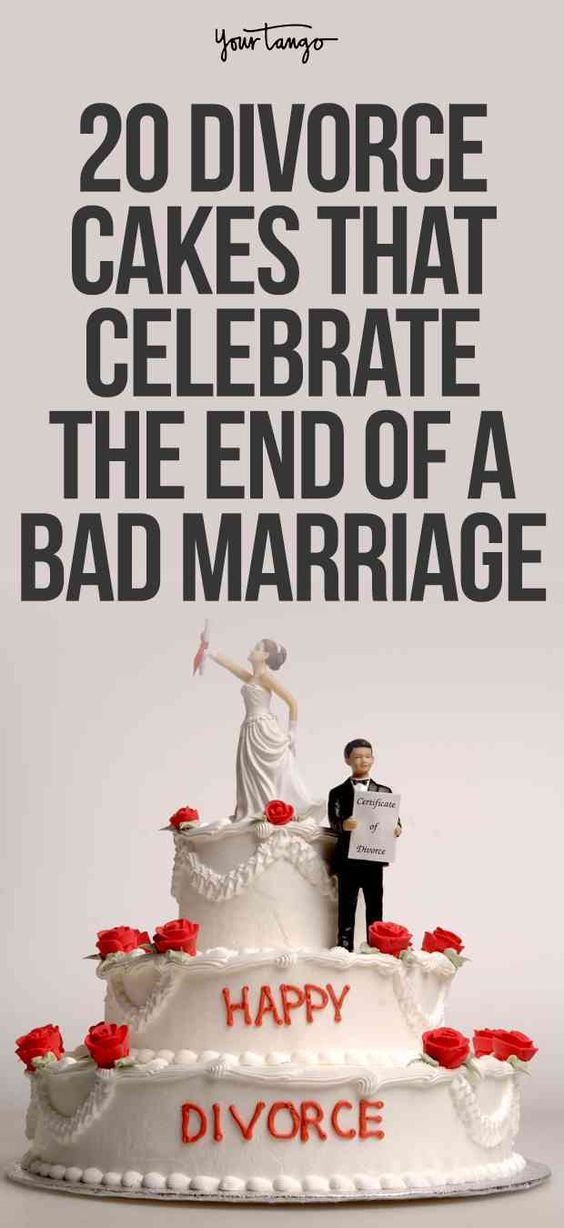 This is the truth about divorce. It can be painful and bitter. But inevitable.
This is the truth about divorce. It can be painful and bitter. But inevitable.
Those are two things that can cause nice people to do horrible things: money and children. As a result, in the fight over who gets what, a lot of ugliness can come out.
6. You don’t have to wait for the divorce to be final to make changes in your lifeApart from knowing when to divorce, it is important that you accept that you have to bring some transformational changes in your life.
Divorce comes about because something isn’t working well in the relationship. So why do you have to wait until after the divorce to fix what is not working right? Work with what you have now.
7. Your finances will totally changeYou will find it very hard to be digging into your finances, especially if you were in the traditional role of being the party who did not pay the bills. Although you get to be independent this way, the truth about divorce is that it can lead to a compromised lifestyle.
In the list of “what to know about divorce” things, remember that you may need to have a nest egg well planned in advance if you are going to start living separately post-divorce.
The truth about divorce is that you have to start from scratch. It is liberating but tedious.
8. You may not trust people anymoreAfter a divorce, you have the mentality that all men/women are the same and they will end up ditching you. You don’t trust what people say. The truth about divorce is that it can make you lose confidence in people and their words.
9. Many divorced couples get back together laterIrrespective of how hard it is to get a divorce, many divorced couples are still drawn to each other and after a long time of separation and thoughts, they can ultimately fall back in love and reconcile.
10. You are bound to make the same mistakesAfter you get divorced, you will definitely find that people who are just like your ex are drawn to you.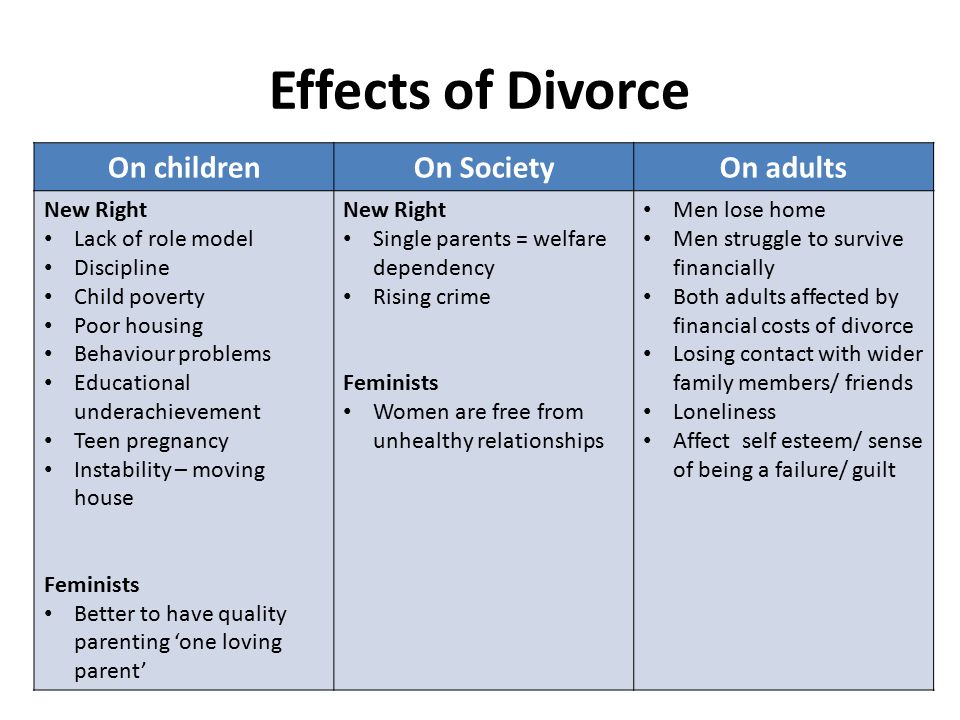 The truth about divorce is that you might be stuck in the same vicious cycle of choosing a wrong partner.
The truth about divorce is that you might be stuck in the same vicious cycle of choosing a wrong partner.
Whether they’re attracted to you or you subconsciously seek them out, you need to make a conscious effort to correct the pattern or the same story will repeat itself.
11. Divorce isn’t the end for youThere is one thing about divorce that you must embrace. Divorce is not the end of life for you.
Divorce will hurt you and it will be very painful, and that is an inevitable truth about divorce. It may even be shameful and of course, it will be heart-breaking.
But despite all the hard stuff you have to face during the divorce process, you will still overcome it. Hopefully, these insights will help you if you find yourself scouring for “what I need to know about divorce”.
Share this article on
Share this article on
Divorce or not? Dealing with a psychologist
The decision to divorce can hang in the air for years, making it difficult to decide on important changes or find a way to survive a crisis in a relationship. A practicing psychologist explains how to help yourself sort out relationships.
A practicing psychologist explains how to help yourself sort out relationships.
Svetlana Makhova, family psychotherapist, specialist in the service for the selection of psychologists Alter
Advertising on RBC www.adv.rbc.ru
Should I get a divorce? In my practice, a small part of married couples turn to a psychologist with such a question. Many more couples go to therapy expecting changes that will help save their marriage. However, even in the process of psychotherapy, spouses may come to the decision to divorce.
Is divorce good or bad?
This is neither bad nor good. And it is hardly possible to evaluate it from such a position - good-bad, right-wrong. Divorce is preceded by a violation of the "homeostasis" of the family system, in which it becomes unbearable to exist for all its members. Divorce is one way to resolve the current situation, in some cases the only one.
Divorce is always associated with severe feelings of loss, changes, and the search for new forms of existence for all family members.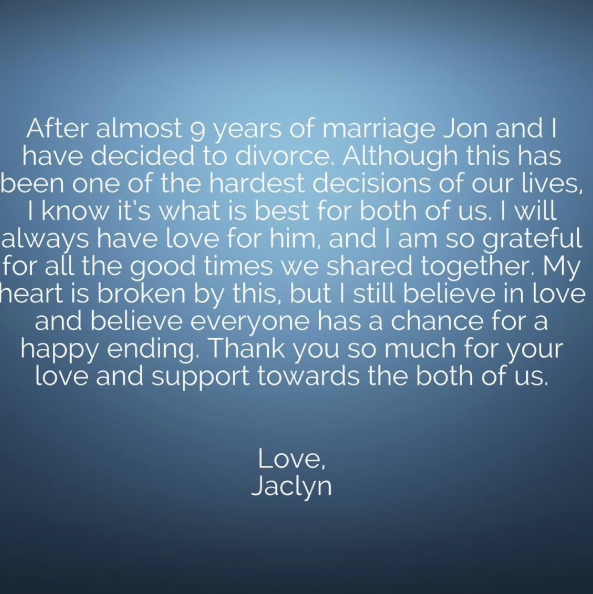 That is why partners are often looking for a way to restore relationships rather than break them. Especially if there are children in the family.
That is why partners are often looking for a way to restore relationships rather than break them. Especially if there are children in the family.
Over the years of marriage, spouses develop their own traditions, rituals, and habits. The thought of divorce is frightening and raises many questions that are not easily answered in a state of emotional stress: where, who and with whom will they live? with what funds? to return to mom? will it be necessary to change the school/kindergarten? Will you have to move to another city/country? how will the second parent, who does not live with them, participate in the upbringing of children? Do you have to go to court for child support? what to do with the apartment? who will pay the mortgage? These and hundreds of other issues cannot be avoided during the divorce process, and for a long time after, so they will have to be addressed.
Still from the film "The Story of Marriage"
© kinopoisk.ru
Is it worth getting a divorce
Before answering this question, let's see what are the main causes of divorce in Russia. The list is based on statistics from open sources in descending order by the number of cases.
The list is based on statistics from open sources in descending order by the number of cases.
Main causes of divorce
- alcohol or drug addiction of one of the spouses;
- domestic violence;
- treason;
- lack of housing for a young couple, living with the parents of the spouses under the same roof, interference of relatives in the life of a married couple;
- financial difficulties;
- irreconcilable contradictions in outlook on life;
- long periods of separation due to business trips, arrests and other circumstances of one of the spouses;
- inability to have children, unwillingness of one of the spouses to have children;
- psychological immaturity of spouses.
Addictive behavior of one of the spouses, as well as domestic violence, are the most common factors. And if you answer the question “is it worth getting a divorce?”, then in the following cases, my answer is “yes”:
- if one of the partners shows physical, sexual, economic violence against the other spouse, as well as against children;
- if one of the partners has a mental disorder (diagnosis confirmed by a psychiatrist) and his behavior may be dangerous to other people;
- if one of the partners is addicted to alcohol or drugs.
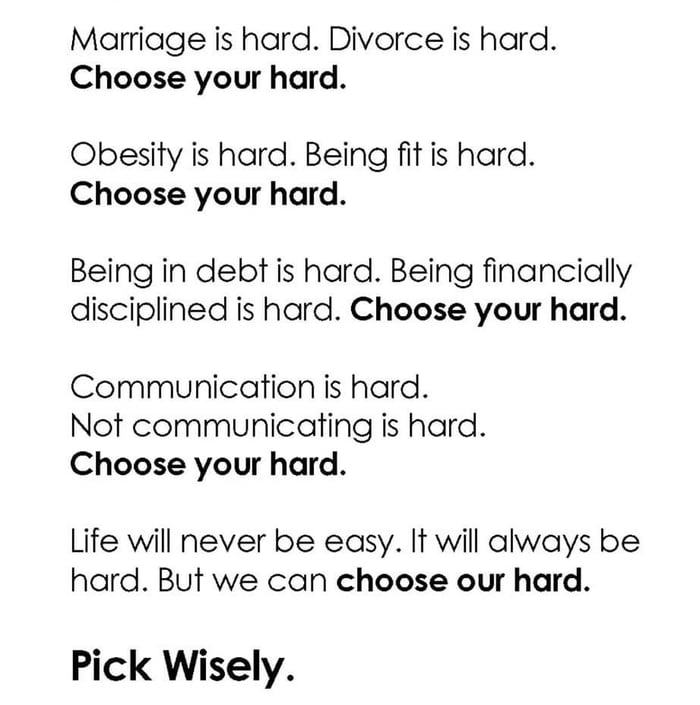
It's not your job to save your partner from addiction; you should not wait for the spouse to understand his aggressiveness, especially in cases where the partner’s actions threaten the life, health and well-being of family members. In these cases, you must leave immediately. Today there is a “harmless” bruise on half of the face, and tomorrow assault may result in resuscitation or death. It is important to protect your life and the lives of children.
Spouses who are inside the situation are not always clearly aware of this.
If the first three points are not about you, it is worth considering whether it is worth considering the option of divorce at all.
A frame from the movie "Kramer vs. Kramer"
© kinopoisk.ru
Crises as a part of marriage
Crises occur in every couple's life. The impetus for them is usually some new situation that cannot be resolved in the usual ways. Each couple experiences these crises at different stages of their life together.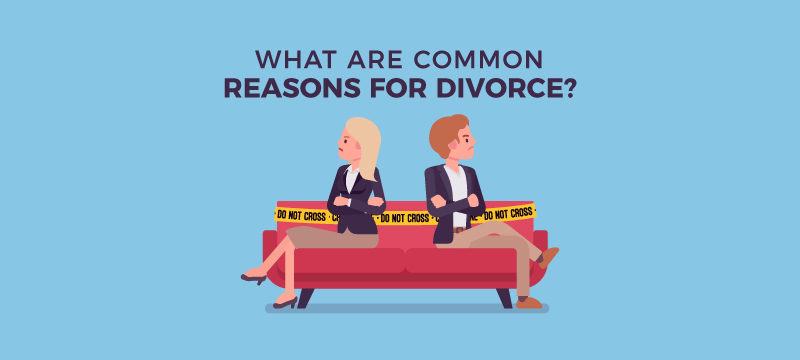
Virginia Satir, one of the founders of family therapy, singled out the following stages of family life, which are especially prone to crises:
- the birth of the first child;
- the child learns speech;
- the birth of a second child, the struggle of children for the attention of their parents;
- the child went to kindergarten/school;
- child's adolescence plus parent's midlife crisis;
- empty nest syndrome, when the children started an independent life and they had their own family;
- wife's menopause;
- decreased libido in husband;
- mastering new roles of grandparents.
I would add to this list the beginning of a life together, when the spouses come together and begin to agree on housekeeping, the distribution of finances and other issues.
Well-known family psychologists Edmond Eidemiller and Viktoras Justickis identified crises associated with adverse events in family life:
- illness of one of the spouses or a child;
- financial crisis;
- adultery;
- conflicts with other people;
- housing problems;
- change in the social status of one of the spouses;
- overload;
- domestic violence;
- adoption, guardianship.

Every crisis has its difficulties and ways to overcome them. Difficulties in relationships are inevitable. And when the question of divorce arises in conversations, it is important to understand at what stage your family is or in which of the unfavorable situations it finds itself in.
What exactly were the difficulties? What is stopping you from finding a way out of the situation? The answers to these questions will help you decide whether to keep the marriage or divorce.
For example, a young couple moved in together and started living together. And after some time they faced difficulties in organizing everyday life: who cooks? who cleans up? who goes to the store? Or the question arose of how to deal with finances: who earns, who stores them, who makes decisions about spending, and so on.
A still from the film Before Midnight
© kinopoisk.ru
How to Negotiate Not to Divorce
Carl Whitaker, a classic of family psychotherapy, wrote that family conflicts are a struggle over “whose rules are right.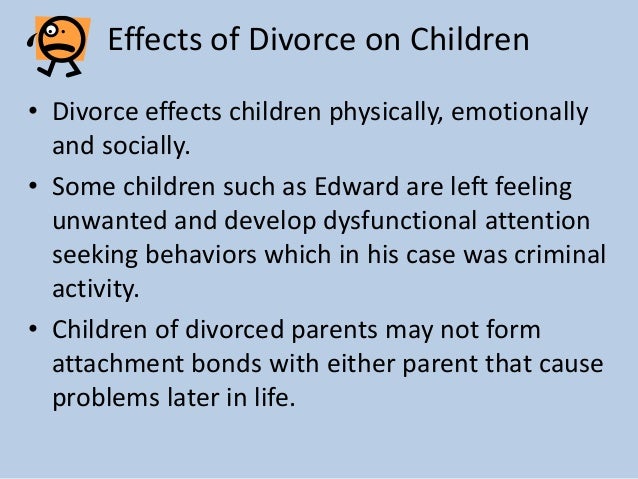 ” Each of the spouses remembers the customs and traditions of his family, which he considers unshakable, and perhaps he never thought that it could be different.
” Each of the spouses remembers the customs and traditions of his family, which he considers unshakable, and perhaps he never thought that it could be different.
If the spouses are ready to listen to each other, share their preferences, fears, needs, habits, talk about the traditions of their families, and maybe even admit that at home he/she was not allowed to solve financial issues and now he/she is at a loss — this will give them more knowledge about each other and help them find a solution that works for both.
Parents of their first child are often on the brink of divorce. Beautiful someone else's photos on the Internet form unjustified expectations from parenthood in a couple. And in fact, spouses face a lot of problems, many of which they cannot cope with - but they must. Uncertainty, shame, guilt towards each other and the environment for their own imperfection begin to destroy relationships.
If a couple is ready to face their imperfections, admit their problems and lack of experience, then it becomes possible to overcome the crisis - perhaps by turning to more experienced parents, a psychologist and other specialists for help and support, thereby relieving tension within the family.
In my practice there was a couple, all conflicts and difficulties of which were due to the peculiarities of their characters. Each of the spouses experienced severe violence, bullying, humiliation and the death of a parent in childhood. Each of them underwent personal psychotherapy. This helped them understand more about themselves, about the motives of their actions, in particular, relative to each other. Sometimes it seemed to me and to them that it was better for them to get a divorce. However, in the process of therapy, they came to the conclusion that if they now leave this relationship, then there is no guarantee that they will not fall into exactly the same ones.
Still from the film "Revolutionary Road"
© kinopoisk.ru
When to get a divorce and why you need a psychologist
Spouses may face the fact that their opinions and views, goals and values differ greatly, and no one is ready for each other yield. And then there comes a moment when both spouses admit that their relationship has no development, and decide to divorce.
If you can't figure out the situation on your own, it's best to contact a family psychologist. Being inside the situation, being immersed in a mass of experiences and emotions, it is difficult to be objective. A family psychologist for a couple is an opportunity to get a sober look from the side, see the “point of difficulty”, hear and understand each other, and only then make an informed decision.
At the stage of divorce and after it, many organizational, “perestroika” issues arise. If it is not possible to reach a common opinion regarding the division of property, the upbringing of children and other points, a mediator may be required. It helps the parties to build a constructive dialogue and reach a compromise.
What to do if there are children in the family and divorce is inevitable
Often couples decide not to divorce because there are children in the family - parents want to save the family for the sake of the child so as not to injure him.
Let's look to experience to see if this approach is actually less traumatic for a child than divorce.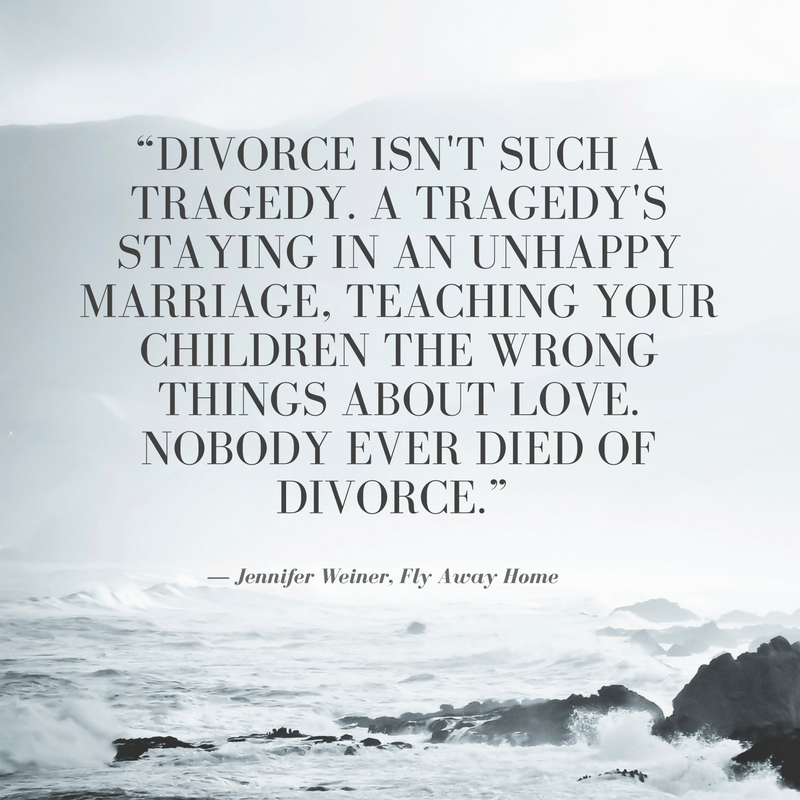
How does divorce affect a child?
Divorce is a shock that will have consequences anyway. People who grew up in an incomplete family often have low self-esteem, an underestimated or, conversely, an overestimated level of claims, a high level of anxiety, shyness in relationships with peers, insecurity and personal insufficiency, difficulties in creating their own family.
What causes this situation?
In the event of a divorce, the child is afraid of losing the love of one of the parents, and at the same time losing a sense of security. Anxiety and fears increase if parents keep the divorce secret until the last moment.
In such situations, the child does not understand the motives for leaving, for example, the father from the family, and he takes the blame for the divorce - dad left because I'm bad. If the mother does not allow the child to communicate with the father, he will be afraid of losing his love due to the fact that they stop contacting, but the child will also experience the fear of losing the love of the mother if she finds out that he communicates with the father.
Children experience divorce differently depending on their age. Babies up to a year are dependent on the emotional state of the mother. The mother's anxiety is transferred to the child, and the mother often either behaves aloof or becomes overprotective.
For preschool children, divorce becomes a violation of a stable family structure, habitual relationships with parents change, attachment to parents develops into conflict. Children become more irritable, aggressive, divorce can provoke a developmental delay. If the child is the only one in the family, he experiences a divorce more difficult than in a situation where he has brothers or sisters with whom he can emotionally discharge. Divorce is the most difficult for teenagers. The experience of a family split is superimposed on the complexities of adolescent change.
Studies and experience have shown that exactly the same emotional problems occur in children from complete, but dysfunctional, dysfunctional families, where quarrels and scandals often occur, where emotional detachment and coldness reign. Therefore, both divorce and life in a dysfunctional family leave an imprint on the character of the child, his development and later life.
Therefore, both divorce and life in a dysfunctional family leave an imprint on the character of the child, his development and later life.
So the decision to save the family for the sake of the child will not be less traumatic for him, since the relationship between the parents will remain tense. And as experience shows, parents who are not satisfied with family life sometimes break down not only on each other, but also take out their dissatisfaction on the child.
The position of mother and father, their ability to cooperate after a divorce, to a large extent determine the well-being of the development of a child in an incomplete family.
How to minimize the consequences of divorce for a child:
- tell your child about the divorce in advance, and not at the moment when you have already gone to the registry office;
- it is important that both parents talk to the child at once and tell him that they both love him and it is not his fault, but they decided so among themselves and that they will always be connected with him, regardless of who he lives with;
- the child should have the opportunity to discuss the divorce with both parents after it has occurred, and to do this for as long as he needs;
- it is better not to separate brothers and sisters, since children are hard at being separated from their loved ones, for them this is an additional blow;
- try to change the child's lifestyle as little as possible, for example, make sure that he attends the same kindergarten or school that he had before the divorce, while maintaining established peer ties and interests;
- give the child the opportunity to communicate with the second parent who does not live with him, because the child loves both mom and dad.
 An exception is if the parent poses a potential danger to his health or life due to alcohol or drug addiction, mental illness, aggressive behavior. In this case, you can try to provide the opportunity to communicate in the presence of both parents.
An exception is if the parent poses a potential danger to his health or life due to alcohol or drug addiction, mental illness, aggressive behavior. In this case, you can try to provide the opportunity to communicate in the presence of both parents.
Tags: psychology
If you decide to submit it for divorce: what you need to know - 7 facts
26 974
Ditter and woman practices How
- Photo
- ShutterStock/Fotodom.ru
, as you read the decision 9000 this article, I can assume that you are already thinking about how to file for divorce and leave.
For many, this decision is a long journey that they go through alone.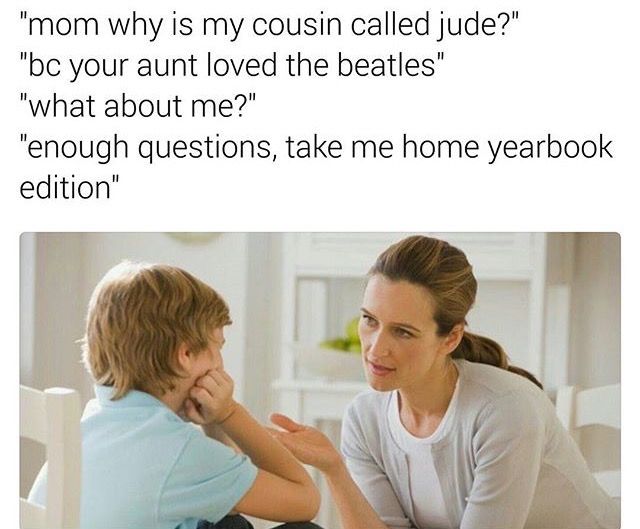 You may have already spoken to friends or a counselor about wanting to take this difficult step first and heard a lot of advice for and against this decision.
You may have already spoken to friends or a counselor about wanting to take this difficult step first and heard a lot of advice for and against this decision.
Or you keep everything to yourself and experience a constant internal struggle. All thoughts and doubts about the correctness of the decision attack you every day while you try to navigate your ship through stormy waters.
But whatever you decide, it will be only your decision: no one knows the details of your marriage more than you yourself
Can this process be made easier? As a psychotherapist, I want to say - hardly possible, especially if you already have children. The decision to leave the family can bring heartache, unrest and chaos and destroy relationships - with friends, relatives or even children.
But sometimes, after a few years, everyone realizes that this decision was the right one for everyone. Before finally summarizing, read and heed the seven tips-cautions.
What you need to know
1. Depression distorts the perception of marriage
Sometimes depression turns off all feelings. In this state, the decision to end the marriage may mistakenly seem obvious. The disorder deprives the ability to think rationally and at the same time “gives” the ability to see and feel something that has nothing to do with reality.
Here's one good clue: if you had a good marriage, but suddenly everything seemed wrong and nothing was happy, it could be a sign of depression.
Before leaving the family, discuss thoughts about what is happening with a competent psychologist
Ask yourself: “Have I done everything to save the relationship”? Because marriage is like a plant. It is enough to forget about it several times and leave it without water, and it will die.
What do I mean? Perhaps there were things you didn't think about in a relationship. Make sure you know enough about what strengthens and supports and, on the contrary, destroys the family, so that you do not repeat these mistakes with other partners.
Make sure you know enough about what strengthens and supports and, on the contrary, destroys the family, so that you do not repeat these mistakes with other partners.
If you are sure that you have done everything possible, but you cannot save the marriage, then you can say in good conscience: "At least I tried."
2. Talk with tact
If your partner and children don't know anything yet, I strongly advise you to pay attention to how you talk about it. You may have been contemplating a decision for months or even years. But relatives may not suspect that such changes are brewing in their ordinary lives. The divorce announcement may sound like a bolt from the blue and hit them like a comet hitting the ground.
Show empathy. This will further facilitate contacts with both the former partner and the children. How can you be kind in such a situation? Well, for example, do not leave the house one day with packed bags and then send a message that you are gone for good.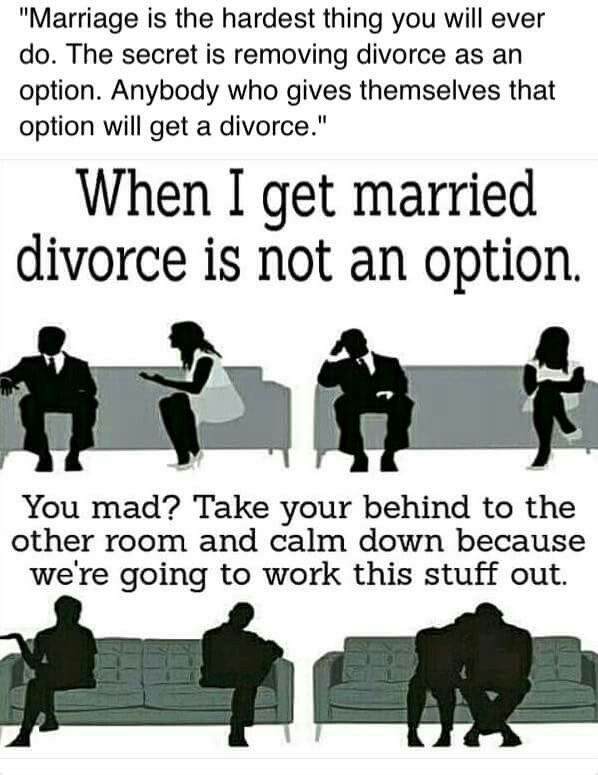 Relationships deserve more than just a simple "bye" no matter how long you've been together.
Relationships deserve more than just a simple "bye" no matter how long you've been together.
Treating people with respect is a sign that you're an adult
No matter how hard it is for you, talking face to face with the person you're leaving is the only proper way to end a relationship. Explain what is going on, what are the plans for the future, and what led to this decision, but never point the finger at a partner or play the game of judge and accused.
After you have said everything, it is very likely that the partner will be at a loss and even in a state of shock, behaving irrationally. Do not argue or bring up real or imagined sins. Try to be calm and reserved.
I advise you to think about and write down in advance what words you will use to communicate your decision to leave, and stick to the plan. Later, it will be time for a more detailed discussion on how to arrange and organize everything.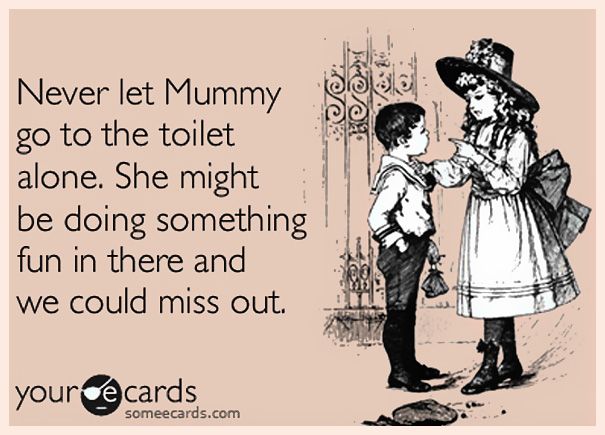
- Picture
- Shutterstock/Fotodom.ru
3. You will feel guilty
You may feel relieved when you decide to divorce and tell your partner. But this is at first. Soon after, you will begin to feel guilt, the feeling that comes when we feel we did something wrong and hurt another person.
Seeing a partner next to you in tears, devoid of faith in himself, completely bewildered, you will not feel very good. You may start thinking, "I'm a terrible person for doing this."
Thoughts can transform into a whole range of other negative emotions and experiences
Try to perceive the situation from the standpoint of facts: “I feel guilty because I am leaving my partner, but I know that this is the right way out in this situation. I hurt, but there's no turning back. "
"
4. You will become a villain to others
If you initiate a divorce and leave first, you may be accused. Even if the partner did not always behave well, it is you who become the destroyer of the union.
You will have to meet the reproach and regret of others - such is the fate of those who leave first
I often advise clients to perceive divorce as the death of a partner - because the experience of this event goes through the same stages as the experience of grief: denial, anger, bargaining , depression, acceptance. All these emotions will be experienced by the partner and many close friends or relatives. Not always in the same order. The anger stage may last longer than others. Be prepared for this.
5. You will lose some friends
Friends, those who have always been on your side, will begin to doubt the correctness of your choice. If last week a close friend said that it was time to leave and find your happiness somewhere else, now she will make a 180-degree turn and begin to offer to return and discuss everything again with her partner.
Of course, this happens more often because your friends care about you, but sometimes it also happens because you disturb the established way of life in some way
Among these hostile friends you may find those whose marriage or partnership is less than ideal. Oddly enough, it is the “suffering” partner in such a relationship who will accuse you of being a terrible person and not fighting to save the marriage. Such discrediting tactics can be a hidden message to your own spouse. Projection is a very powerful thing.
Some of your mutual friends may have less and less contact with you. Others will remain - those about whom you will later say that they are worth their weight in gold.
- Photo
- Shutterstock/Fotodom.ru
6. You will begin to have doubts
Many of those who have gone through a divorce and were determined to discover one fine day that their feelings have changed. They faced doubts about the need to leave.
They faced doubts about the need to leave.
You may be afraid of the unknown and uncertain future. And looking into this frightening future, where you will not be protected by the familiar realities of your previous marriage, you will want to seek safety and go back - even if you know that this is not worth doing.
If you often have these doubts, it doesn't mean that you have taken the wrong step. Change your perspective - think about what was in this relationship that you would not like to repeat in the next?
If you do not do this work, you can get into the mood and go back, not because you want to, but because it will be easier and more convenient for everyone else, and so you will get rid of uncertainty and angry comments addressed to you.
If you have any doubts about whether to leave, take time to think and re-examine your feelings and thoughts.
7. Children will be stressed
If you have children, that might be the only real reason why you didn't leave much sooner.
Many people stay in unhappy relationships for years and decades because they want to do what is best for the children.
If you leave, be honest and keep in constant contact with them. Try to participate in all activities as before. If you took your son to football, keep doing it. Do not try to indulge, it will not change much in your relationship.
The hardest part of parting is seeing how the child feels. He will tell you that he hates and doesn't want to see you again. Have the courage to listen to what your child is feeling about your divorce, even if you are hurting deep inside. This is often a test to see if you can still be dealt with.
The child in his soul wants one thing: that his parents are still with him
Time will pass, and when the child feels that the world has not collapsed, but simply changed, it will be easier to build new relationships with you. They will never be the same, but they can still be good and even better.
